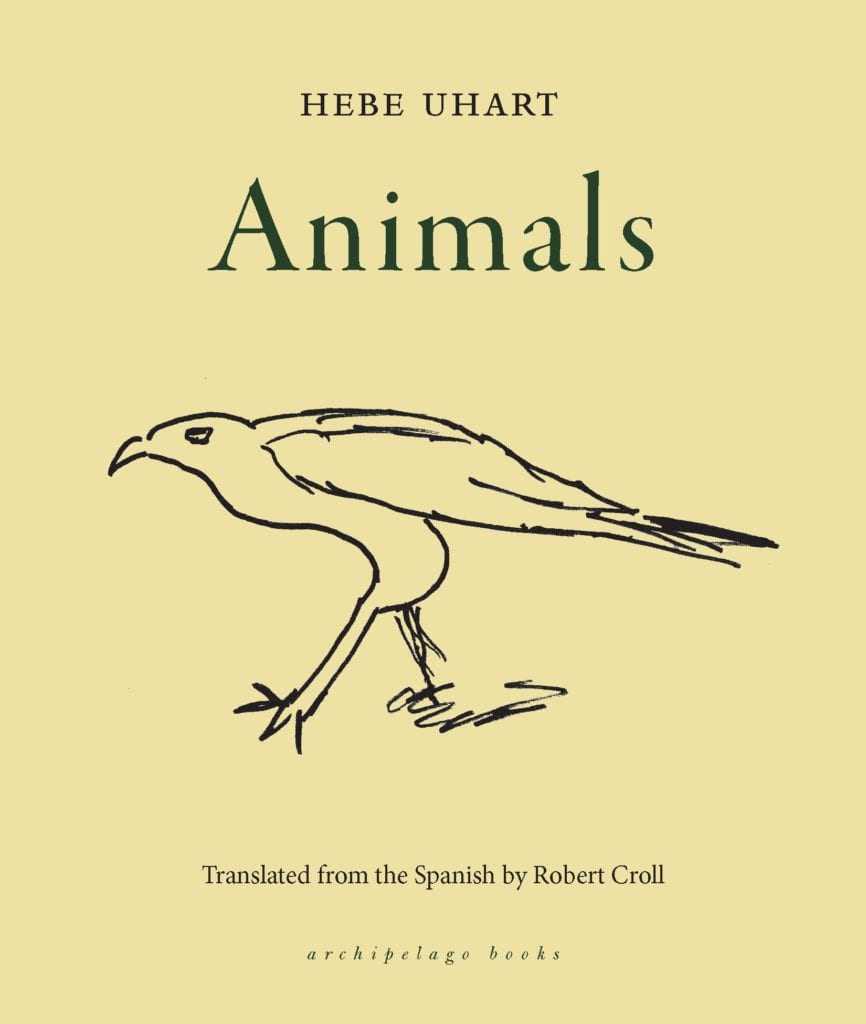Uhart, who died in 2018, was an utter master of the gentle observation. Her work combines unsentimental affection with endless curiosity about the details of everyday life . . . Animals is at once tender, bemused, informative, and deeply fun . . . It asks, through sweet, respectful attention, how we might best relate to animals; how we humans, so accustomed to seeing ourselves as nature's rulers, might adjust our attitudes.— Lily Meyer, NPR
Reading Hebe Uhart we laugh a lot, although we are never sure if what we’ve read is just a joke, because in her words there is also, above all, precision and wisdom . . . Hebe Uhart’s books are full of these small revelations, which are born of a religious attention to detail and an ear that clearly perceives the ups and downs of language.— Alejandro Zambra
Hebe approached her subjects from an astonished and oblique angle that, at first, might appear naive. Not so. Her short stories feature protagonists rarely seen in Argentine literature...Always rescuing the voices that no one pays attention to, yet not at all in a pompous way, for, if there was one thing that Hebe Uhart never wanted to do, it was to fall into the common position of giving voice to the voiceless and other slogans that she would consider idiotic.— Mariana Enriquez (translated by Robert Croll), Página/12
Hebe Uhart’s characters are made of an almost palpable material. They are alive, and they seem to emerge from the page to tell us, ‘This one here is me, that one over there could be you.’ How we move, how we walk, how we keep quiet: that is what Uhart observes in each of us. But also how we pause, how we sneeze, what onomatopoeias we use, how our being is revealed through everyday gestures that at times can contradict the ideas we claim to hold. It’s through these minute observations, and her repudiation of generalities, that the writer unfurls her tentacles to construct her characters.— Alejandra Costamagna, The Paris Review
Hebe Uhart is one of Argentina’s finest storytellers.— Asymptote Journal
Animals, in a translation by Robert Croll, is a delight...Uhart is as interested in engaging with other thinkers’ thoughts on various creatures, or those of a zookeeper, as she is her own, all the while making room for plenty of other ruminations.— Eric M. B. Becker, Words Without Borders
For Hebe Uhart, “looking” was the most authentic way of writing, as if her arrested and thoughtful gaze over characters was carried into the words that formed their stories.— Edwin Madrid
Beautifully translated by Robert Croll, the book blending together memoir, zoology and cultural history . . . Animals is a delightful, personal compendium, full of eccentricity and emotional depth.— Francesca Carington, Tatler
Poised somewhere between narrative and sense memory, Uhart’s lens looks into sundry lives and renders the act of surveillance both venal and holy.— Foreword Reviews
[Uhart] is one of the most singular and exciting female voices of recent decades in Latin America. Her unique body of work and her unforgettable voice lives on in many of today’s younger generation of writers emerging on the continent.— Morning Star
Her short stories and vignettes from daily life shimmer with truth . . . Fans of writers from Alice Munro to William Trevor will find Uhart’s work, whenever it appears in English, a delight.— Samuel Rutter, The Arkansas International
[Uhart’s stories] steadily, unobtrusively oxygenate the world around them ... Uhart helped shape a generation of writers in Argentina as both a teacher and a writer, her influence both diffuse and impossible to ignore.— Sam Carter, Music & Literature
PRAISE FOR HEBE UHART’S THE SCENT OF BUENOS AIRES
—
Immersing oneself in this collection – her first book to be translated into English, by Maureen Shaughnessy – is indeed like travelling, as we visit one character’s world and then another’s, inhabiting the revealing mundanities of each life. Little happens in terms of plot; rather, each story is an understated exercise in conjuring a whole existence through a revealing thought or gesture . . . the reader returns from her travels feeling refreshingly unbalanced.— Emily Rhodes, The Guardian



